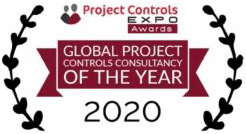As a project controls professional, having worked on projects across North America and the UK, I have come across a common misconception about project controls. I call this misconception the reporting myth. This is when clients believe that a project controller can be deployed on a project and instantly generate a steady stream of reports. This, in turn, allows project managers to understand the health of their project and start addressing issues and exploiting opportunities.
The truth is that reporting accounts for only a small percentage of their daily responsibilities. Assuming a project is well structured and quality data is flowing, reporting is a simple and straight forward task. The project team quickly lose engagement when project controllers are unable to perform as expected, and it is challenging to regain once lost. As a result, project controls never gets used to its full potential to positively influence outcomes.
This article will address the reporting myth by first looking at the consequences when roles and responsibilities are not adequately defined and understood. To truly dispel the reporting myth is no quick fix. Furthermore, this article is the first in a series of blogs and webinars. Keep your eye out for more on this topic in the coming months.
The Importance
Unsurprisingly, many projects end up costing more than anticipated and fail to meet the opening date. What is surprising is the actual number of projects that have this as a consistent theme. When LogiKal conducted a 2020 survey, only 34% of projects achieved all or most of their time, cost, and quality objectives. For this reason, it has never been more important for project professionals to dispel the reporting myth and focus on adopting modern project management techniques. This will results in safe and successful project delivery by achieving all or most time, cost, and quality objectives.
Feedback

It is clear that projects are generally not achieving their objectives but how does project controls help? Well, it is one of the strongest tools because it provides a constant gauge, giving feedback on the schedule, cost and quality performance. This feedback allows decision makers to take action early on to address issues and exploit opportunities. This can be achieved through the application of a process known as Earned Value Management (EVM). This is where the project is analysed at specific intervals and then compared to a baseline.
The feedback you receive can indicate issues and opportunities before they start to affect the project. The process is very powerful and can be easily understood and conveyed through a few simple charts and tables. Depending on the audience, more or less detail can be provided so that high level reports or root cause analyses can take place. This is essentially one of the project managers best tools for understanding the health of a project.
Project Controls
The first step in addressing the reporting myth is to fully understand the role of project controls and project controllers in safe and successful project delivery. Originally, project controls emerged in the form of a process known as Earned Value Management (EVM). This was a financial analysis speciality used by the United States Government programs in the 1960s. Since then, it has become a significant branch of project management and cost engineering (IPMA, 2018). Today you will find it in project management standards worldwide. One issue is that these definitions tend to be very broad, leading to misconceptions and ultimately the reporting myth.
To illustrate this point, an excerpt from ‘The Association for Project Managers – Introduction to project controls’ paper states:
“The project management ‘process’ is a combination of numerous individual processes, many of which relate to the subsidiary discipline of project control. Much of what a project manager does is directly or indirectly related to project control, but the APM Body of Knowledge, 5th edition does not explicitly define project control and it is rather difficult to arrive at a concise definition. One possible definition of project control is: “The application of processes to measure project performance against the project plan, to enable variances to be identified and corrected, so that project objectives are achieved.” – APM, ‘Introduction to Project Controls’, p1.
This definition does not provide the steps that project controls professionals must take for the project to achieve its objectives. This adds to the reporting myth and delays the process of getting reports into the decision maker’s hands.
Symptoms of the Myth
By continuing to loosely define project controls and the roles professionals play in its delivery, we are contributing to the propagation of the reporting myth. Most projects exhibit similar symptoms, missing a large portion of their objectives when this occurs. Project controls is not rolled out as expected on most projects, resulting in limited engagement and a failed exercise. A report is generated but without the interest of those bringing the project to fruition. Consequently, the project does not receive the benefits of project controls. This can happen when project controls are engaged too late or not given the required resources to flourish. Without timely involvement and adequate resources, project controllers can’t give a project the required structure and, the necessary reporting. Ultimately, the goal of getting project controls to provide consistent feedback about a project’s health never gets realised.
What is Project Controls?
It is the integration of the technical practices and disciplines required to effectively deliver a project or programme of work. It is effectively a subset of project management processes focussed specifically on the technical delivery aspect of a project: planning, cost control, risk management, change management, Earned Value Management, reporting, and analysis form the basis of this discipline. (LogiKal’s definition)
In layman’s terms, project controls is responsible for giving projects the backbone required to survive. They integrate the project team, manage the flow of data and ensure consistent feedback on the project’s health is obtained. This is organised through high quality reports that allow decisions can be made without hesitation.
A great way of thinking about this is the analogy that the Association for Project Management gives:
“If you think of a project as flying a plane, the project controller is the navigator to the project manager ‘pilot’.” – APM, ‘What do Project Controllers do’.
The great part of this analogy is that the controller (navigator) and the project manager (pilot) must work together. Although the pilot might be able to fly and navigate a small plane, as it becomes larger and more complex, the navigator picks up the responsibilities they are no longer free to do. It’s also great at illustrating that they must work together for the entirety of the journey. The pilot does not fly the plane to cruising altitude and then pull over to pick-up the navigator, they work together to safely start and finish the journey.
Conclusion
This is only the first step in addressing the reporting myth. It is essential to raise awareness of how the consistent feedback of project controls helps safely and successfully deliver projects. There also needs to be an awareness of the role that project controllers play to ensure that this managerial technique is used to its full potential to positively steer projects towards these targets.
This blog will make up a series of articles and webinars that will aim to dispel this myth. Please stay tuned for additional updates.
You can watch the latest webinar in this series ‘Project Controls: More Than Just a Reporting Function‘ here.
If you’d like any help unleashing the full potential of your project controls department, get in touch!
You can call on +44 (0)20 7404 4826 or email us at info@logikalprojects.com
Or you can use the Contact Us form here.






